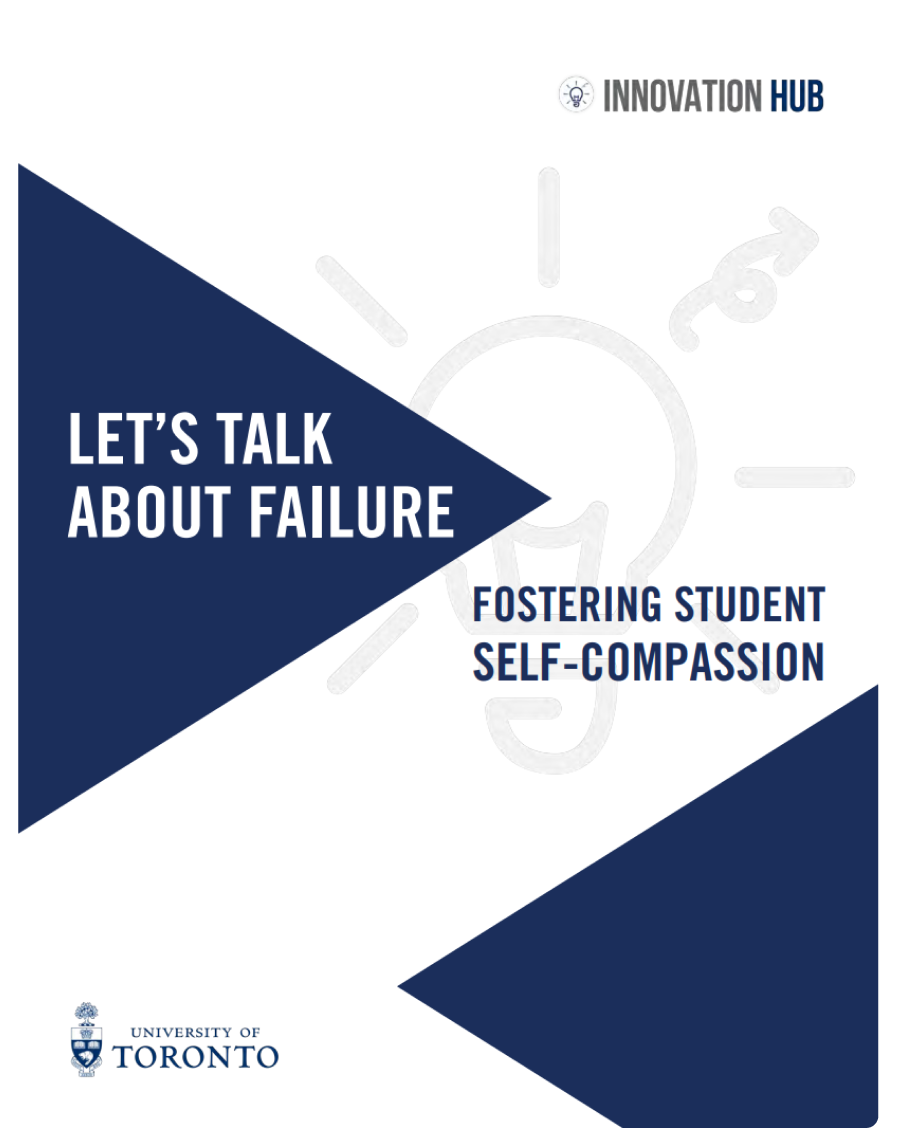Academic Success: Let's Talk About Failure
In partnership with Academic Success, the Innovation Hub ran student-led feedback sessions to gain a deeper understanding of what it’s like to experience failure at UofT, however students define it, and how it can be supported. These were supportive, inclusive sessions where students can share what happened, how it’s hard, what students wish they had known, and more.
Fall/Winter 2021-2022
How do UofT students experience failure and what are their stories of failure?
Most students experience some form of stress or setback during their education, but UofT students experience academic setbacks in a particular way. Worsened by the narrative of excellence, stories of failure do not appear to be formative of growth and learning at UofT, even though failure or setback is a common part of learning and life. The Division of Student Life Academic Resilience Initiative has partnered with the Innovation Hub to collect student failure stories.
KEY FINDINGS
Students need the freedom to fail to become compassionate towards themselves
- Challenging Narrow Measurements of Success
- The Self Struggle
- Paradigm Shifts
Challenging Narrow Measurements of Success: Student failure stories were primarily focused on not achieving academic or career goals that they saw as key to their accomplishment and excellence at the university. Examples of these missed goals include not achieving desired grades on course assessments or not obtaining desired job placements. Students shared that these failures prompted challenging self-evaluations, arising especially from the comparisons and expectations that they already hold.
The Self Struggle: Students spoke about how the process of working through their failures impacted their sense of self and their mental health. Students described internalising and identifying the negative emotions of failure to themselves, such that at times an act of failing became an identity of failure, alienating and isolating the students from others whom they felt were succeeding. This internal struggle became external when students spoke about their attempts, and often challenges, with seeking help, and how this process was complicated by stigma about help-seeking.
Paradigm Shifts: Many students spoke about the personal development and changes in perspective that came about with failure—how they began to see their situation and themselves differently. These perspective changes were helpful once they had accepted the failure and moved on from it, such that it was a part of their story but not focus of their entire identity
